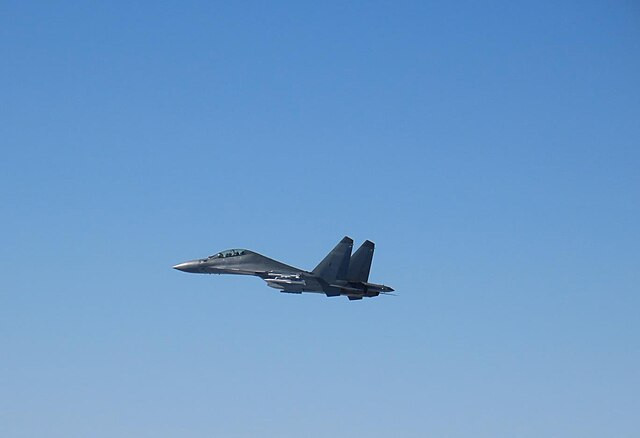A Canadian patrol aircraft enforcing United Nations sanctions on North Korea was intercepted twice by Chinese fighter jets over the East China Sea, highlighting the growing tension between Beijing and Western allies operating in international airspace.
According to CBS News, which was onboard the Royal Canadian Air Force CP-140 Aurora, the aircraft was flying in international airspace as part of Operation NEON, a multinational mission aimed at enforcing sanctions on North Korean vessels engaged in illicit maritime trade. The patrols, coordinated from Kadena Air Base in Japan, involve gathering intelligence on ship-to-ship transfers believed to circumvent UN restrictions on Pyongyang's economy.
During one such patrol, a Chinese supersonic fighter jet approached the Canadian aircraft, hailing the captain mid-flight. The Aurora's commander replied: "I'm a Canadian aircraft operating in international airspace, carrying out the duties of all nations." The Chinese pilot gave no response and shadowed the Aurora for half an hour, CBS reported.
Hours later, a second Chinese jet armed with missiles closed to within roughly 200 feet of the Canadian plane. The encounter marked one of the closest and most provocative interceptions of the mission. The Canadian crew remained calm as they documented the maneuver while maintaining course. "As long as things remain professional and safe, this mission continues unabated," Brigadier General Jeff Davis, who oversees Canada's participation in Operation NEON, told CBS News.
Operation NEON represents Canada's contribution to a UN Security Council-backed initiative involving several allied nations, including the United States, Japan, and Australia. The operation targets vessels suspected of transferring banned goods such as oil, coal, or weapons components to North Korea. Data collected - including photos, videos, and logs - are sent to the UN Enforcement Coordination Cell.
The encounters underscore China's expanding role in shielding Pyongyang from international pressure. Beijing remains North Korea's principal economic lifeline, continuing trade despite sanctions first imposed after Pyongyang's 2006 nuclear test. Western defense officials say China's aggressive intercepts send a clear signal discouraging further allied surveillance in the East China Sea.
The East China Sea has long been a flashpoint, bordered by China, Japan, Taiwan, and the Korean Peninsula. Pyongyang's persistent nuclear development has prompted U.S. allies to maintain constant maritime and aerial monitoring. Canada's aircraft frequently operate in proximity to Chinese airspace, where such confrontations are increasingly common.
Tensions are further complicated by renewed geopolitical alignments. Russia has reportedly received ammunition and personnel from North Korea in exchange for oil shipments supporting Moscow's war in Ukraine, while China's refusal to enforce sanctions adds diplomatic strain.
The Canadian Air Force's Aurora returned safely to Kadena Air Base after a nine-hour mission. Similar near-misses have occurred before - in 2022, Canadian pilots reported Chinese fighters flying close enough to make eye contact in midair. Despite repeated risks, officials say the surveillance flights will continue as North Korea expands its arsenal, believed to include around 50 nuclear weapons and long-range missiles capable of reaching the U.S. mainland.





